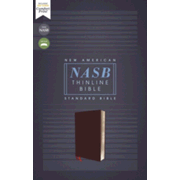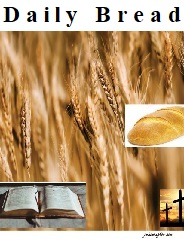At the beginning of Matthew chapter 3, we meet John the Baptist, whom Jesus proclaims as the greatest prophet born among women (Matthew 11:11) John’s message is incredibly simple, yet its impact has been incredibly profound, His message is for man to repent. That’s it.
Matthew 3:2 – “Repent, for the kingdom of heaven is at hand.” (NASB)
John the Baptist could be considered the last of the Hebrew prophets of the old school. Like the prophets of the Old Testament, he maintained that the day of the Lord was at hand and the final establishment of the ideal world was imminent. 4
Jesus said John the Baptist was the greatest man ever born up to His day (Matthew 11:11). In a very real sense, he was the first Christian, the first Christian witness, the first Christian preacher, the first Christian prophet, and, finally the first Christian martyr. He was the first to baptize converts, and could even have started the first local church since the disciples of Christ were already largely organized and ministering together under John before they were instructed to follow Christ (John 1:35-37; Acts 1:15-26). 7
No date is given in Matthew 3 for the appearance of John the Baptist’s preaching. But a careful chronological note in the Gospel of Luke, suggests the date is A.D. 29. At that time Jesus was thirty-three or thirty-five years old. 4
A Sunday School lesson on Matthew 3:1-12 presents the main idea: People can be self-centered. It’s easy for them to want attention and praise for everything they do. But, see how John the Baptist had a mission of pointing others to Christ first and foremost.
John The Baptist Prepares The Way
The main point of Matthew chapter 3 is that Jesus was the coming Messiah and King, and John the Baptist was the one crying in the wilderness. And through John the Baptist’s message of repentance, he worked to prepare the way of the LORD. Any great work of God begins with great preparation.
Jesus is beginning His public ministry, in Matthew chapter 3, with a public and obedient act of baptism. This public act is also an interaction between all three members of the Trinity. God The Father looked down and spoke, Jesus was baptized in the river and The Holy Spirit rest on Jesus like a dove.
Repent
John’s message was a call to repentance. Repentance is not mostly about feeling sorry for your sin. Repent isn’t a “feelings” word. It is an action word. John told his listeners to make a change of mind, not merely to feel sorry for what they had done. Repentance speaks of a change of direction, not a sorrow in the heart.
John the Baptist delivered one central message to the Israelites. The word “repent” is “metanoeite” in Greek, which means “to change one’s heart and mind.” More literally, it means to change direction, to stop going the wrong way, and to start going in the right way.
Repentance does not describe something we must do before we come to God; it describes what coming to God is like. We can’t come to the kingdom of heaven unless we leave our sins and self-life.
Repentance is important and must not be neglected. Repent is:
- The first word of John the Baptist’s gospel (Mathew 3:1, 2),
- The first word of Jesus’ gospel (Mathew 4:7 and Mark 1:14-15),
- The first word in the preaching ministry of the twelve disciples (Mark 6:12),
- The first word in the preaching instructions Jesus gave to His disciples after His resurrection (Luke 24:46, 47),
- The first word of exhortation in the first Christian sermon (Acts 2:38),
- The first word in the mouth of the Apostle Paul through his ministry (Acts 26:19, 20)
Repentance cleanses the heart, enlightens the sense, and prepares the human soul for the reception of Christ. But even when we pay our just debt of righteousness, we do God no service but only gain His forgiveness.
Scripture also instructs, “For the sorrow that is according to the will of God produces a repentance without regret, leading to salvation, but the sorrow of the world produces death.” (2 Corinthians 7:10 NASB) The most important step of repentance is a decision that changes the course of life. Salvation is a change of mind and heart concerning our sin and Christ’s atonement for it.
There are three elements of repentance:
- Contrition,
- Confessing sin,
- And calling on God for mercy.
Repentance also includes forsaking our sins so that we gain the greater pleasures of knowing God and walking with him (Matthew 13:44-46).
There is a difference between remorse and genuine repentance. They are different in their reasons. Remorse is primarily sorrow for the consequences of our sins. Repentance is primarily sorrowful for sinning against the love and holiness of God.
Repentance in itself does not save, but one cannot read the New Testament and be unaware of its emphasis on repentance. 1 The New Testament also suggests that repentance does not occur without divine aid (Acts 11:8; 2 Timothy 2:25).
Repentance is an act of faith in Jesus Christ, an acknowledgment of the power of His Atonement. You can be forgiven only on His terms. As you gratefully recognize His Atonement and His power to cleanse you from sin, you are able to “exercise your faith unto repentance” (Alma 34:17). Note: The Book of Alma is not in the Catholic, Protestant, Hebrew, or Jewish bibles. It is one of the books that make up The Book of Mormon.
According to Gandhiji, the purest form of repentance is a clean confession accompanied by a pledge to never commit the sin again.
Does God Command Us to Repent?
We need to pray for repentance. But repentance is something God tells us to do. In other words: Repentance is a command. God “commands all people everywhere to repent.” (Acts 17:30).
The importance of repentance is highlighted by the fact that repentance was the keynote of the preaching of John the Baptist (Matt 3:2; Mark 1:15). 2
Thiessen wrote that God does not call men to a reformation of life, to good works, to baptism, to church involvement, etc. These are all proper things in themselves, but they are merely the sure fruit of that to which He does call men. The things to which he calls men are repentance (Matt 3:2; 4:17; Mark 1:14; Acts 2:38; 17:30; 2 Peter 3:9), and faith (Mark 1:15; John 6:29; Acts 16:31; 19:4; 1 John 3:23). 3
Baptism of Jesus
Baptism was not a rite prominent in Jewish practice. Ezekiel speaks of the symbolic use of water to cleanse Jews after the profanation of their exile among the heathen and their exposure to heathen practices. (Ezekiel 36:24 – 26) And this was what John the Baptist claimed to be doing through the baptismal rite. He used the water of the Jordan River and was most likely influenced by Elisha’s words to the Syrian leper:
2 Kings 5:10 – Go and wash in Jordan … and thou shalt be clean. 4
However whatever use Jews may have put to baptism, circumcision remained the rite marking the true entry of the Gentile into the brotherhood of Judaism. In Christian practice, partly as a result of the work of John the Baptist, baptism replaced circumcision as the initiatory rite. 4
Jesus came to John the Baptist while he was baptizing people in the River Jordan. John tried to make him change his mind, but Jesus answered, “In this way we will do all that God requires.” So, John agreed and he baptized Jesus in the River Jordan at Bethany.
Repenting is a Radical Change

“Repentance is not merely a change of mind but a radical change in one’s life as a whole that especially involve forsaking sin and turning or returning to God.” 5
When we are truly repentant, we usually have a willingness to make amends. We will do whatever it takes to make things right and to demonstrate we have changed. We are patient with those we’ve hurt or victimized, spending as much time as is required listening to them without jumping to defend ourselves.
But the Main Message –
John The Baptist’s main message wasn’t “You’re a sinner, you need to repent.” John’s main message was “Messiah the King is coming.” The call to repentance was the response to the news that the King and His kingdom were coming – indeed, already here in one sense.
“God purposed that He would fellowship with people who of their own free will decided to respond to His universal call to salvation. In keeping with this divine purpose, God endowed human beings with the capacity to accept or reject Him. The human will has been freed sufficiently to, as Scriptures implore, ‘turn to God,’ ‘repent,’ and ‘believe.’” 6
______________Affiliate link – SHOP: _______________
_This ad is for my favorite version of The Bible _
_____but click on it to go to the whole store______


NASB Comfort Print Thinline Bible, Red Letter Edition–bonded leather, burgundy (click here)
By Zondervan
The beloved 1995 Edition of the New American Standard Bible is now easier to read with Zondervan’s exclusive NASB Comfort Print® typeface. This edition of the NASB Thinline Bibles is available in a variety of sophisticated designs in a portable, easy-to-read format.
- The full text of the New American Standard Bible, 1995 Edition
- Exquisite, durable covers
- Less than one inch thick
- Double-column format
- Presentation page
- Two satin ribbon markers
- Words of Christ in red
- Exclusive Zondervan NASB Comfort Print 9 point type
Features:
____________________________________________
In conclusion, consider what the Daily Bread email message sent on 5/22/2023 says,

Matthew 3:2 – “Repent, for the kingdom of heaven is at hand.” (NASB)
Repentance is much more than just acknowledging wrongdoings. It is a change of mind and heart that gives us a fresh view about God, about ourselves, and about the world. It includes turning away from sin and turning to God for forgiveness. It is motivated by love for God and the sincere desire to obey His commandments.
You Can Receive The Daily Bread, for FREE.
To receive the Daily Bread email messages, free on Mon., Wed., and Fri., in your email inbox, just fill in the form below or send an email, and ask to be added, to jmikeh@jmhowington.com
References:
- , pg. 362.
- Henry C. Thiessen (revised by Vernon D. Doerksen), Lectures in Systematic Theology (Grand Rapids, MI: Eerdmans, 1981), pg. 268.
- Ibid, pg. 266
- Isaac Asimov, Asimov’s Guide To The Bible – Two Volumes In One (New York, NY: Avenel Books, 1981), Pg. 803.
- “NIV,” International Bible Society, The Holy Bible, New International Version, Study Bible (Zondervan Publishing House copyright 1973, 1978, and 1984.), pg. 1470.
- Stanley M. Horton, general editor, Systematic Theology (Springfield, MO: Legion Press, 1994), pg. 253.
- Morris, Henry, The New Defender’s Study Bible (Nashville, TN: World Publishing Inc, 1995 and 2006) pg. 1389.
